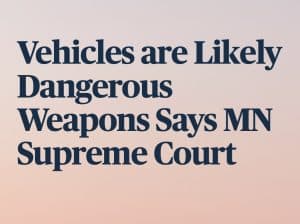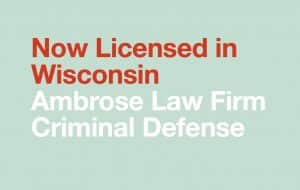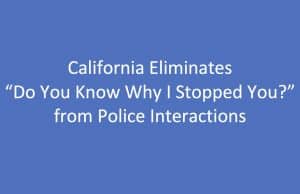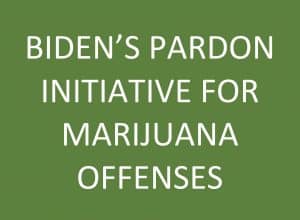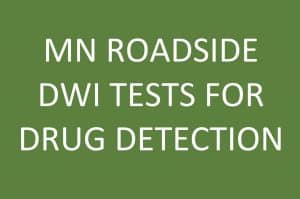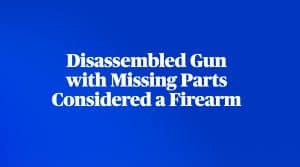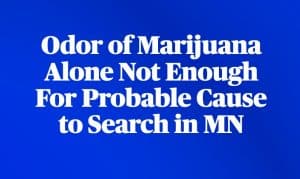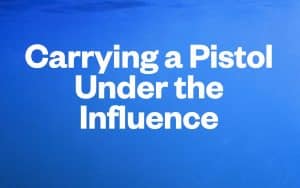 Carrying a Pistol Under the Influence in Minnesota
Carrying a Pistol Under the Influence in Minnesota
When someone is under the influence of alcohol or drugs, one of the last things they may be worried about is whether they are committing a crime if they are carrying a pistol. However, carrying a pistol under the influence in Minnesota is a common occurrence whether charged as a criminal offense or not. Often, it may happen when someone is driving a vehicle under the influence. For example, a DWI occurs and the driver has a pistol in their center console. Even though the person does not have the firearm on their person, it is enough for constructive possession.
The other wrinkle in the carrying under the influence statutory scheme is that the person must be carrying the gun in a public place. The statute does not define “public place”, but there is a flavoring of caselaw on the topic. In one Minnesota Court of Appeals opinion, the court defined it as “generally an indoor or outdoor area, whether privately or publicly owned, to which the public have access by right or by invitation.” Yes, even privately owned spaces can count as a “public place”. Even privately owned businesses open to the public. Even your vehicle being driven on a public road. The pitfalls are voluminous.
Like DWIs, carrying a pistol under the influence has several statutory clauses outlining what it takes to be under the influence. The first no-no is if the person is under the influence of a controlled substance. Second, if the person is under the influence of a combination of any of these two: controlled substance, alcohol, or cannabis. Third, if the person is under the influence of an intoxicating substance, such as huffing nitrous oxide. Fourth, if the person is under the influence of the sauce – alcohol. Fifth, if the person’s alcohol concentration level is .10 or more as evidenced by an evidentiary breath test, such as the DataMaster (DMT). Sixth, if the person’s alcohol concentration level is less than .10, but more than .04 as measured by the DMT. Seventh, if the person is under the influence of cannabis.
Also like DWIs, a peace officer must be read the breath test advisory before asking a person to submit to a DMT. Otherwise, they risk the possibility of the breath tests results being suppressed and the charge dismissed. The criminal penalty is a misdemeanor for a first-time offense; and a gross misdemeanor for subsequent violations. Further, a person may have to forfeit their firearm and lose their conceal-and-carry permit as consequences for this offense. They may also have to wait a year before they can reapply to get their permit back.
A seemingly unknown offense with unfortunate consequences for those who are simply under the influence and not wielding their firearm when they are drunk or high. For a consultation at no charge, please call or text us at 612-547-3199 or email: ambroselegal@icloud.com.
Robert H. Ambrose is a criminal defense attorney and DWI lawyer in the Twin Cities and the state of Wisconsin. Super Lawyers named him a Super Lawyer for the past three years and a Rising Star in the preceding six years. He is an adjunct professor at the University of Minnesota Law School. DWI Attorney Minneapolis MN; Criminal Defense Attorney Wisconsin; and Criminal Lawyer Minnesota.

